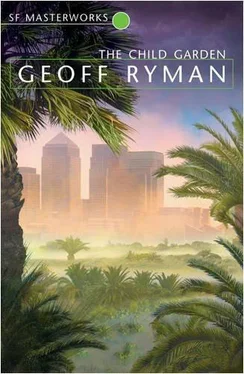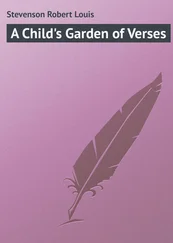Her mother gave her hand another exasperated shake. The box was being lowered. More murmuring, and a shaking of water. Milena watched the light in the water. That was nice. It was like her resin watering can. It was as if her father had become a plant, to be tended.
‘She doesn’t understand,’ murmured Milena’s mother, explaining, apologising. Milena, the infant, felt a surprisingly fierce wrenching of anger. I don’t understand, do I? I understand as well as you do, thought the child. I just understand it differently.
There was much more to endure. Soil was heaped. The villagers came forward, one by one, to say they were sorry, and take Milena’s mother’s hand, and lean down over Milena and say something false. None of them really knew Milena’s family. Milena’s family were strangers, to them, mysterious people who lived high on an isolated hill. One of them gave Milena and her mother a lift in a cart up the slopes back to their house. Milena sat in the back with sacks of grain, wanting the adults to go away. She wanted to be alone with her world.
Finally, the cart left them, and Milena’s mother went inside the house to change and Milena was left, standing in the garden, in front of a gate. Beyond it was a field.
Beside the gate, there was a tree. Its leaves glowed with light; the trunk was riddled with deep cracks. Blossom was hung about its branches and the scent of it was like a thread, linking things together.
Milena and the tree stood poised together, as if to escape.
Then something spoke.
‘Lipy,’ it said, naming the tree. Everything seemed to darken, as if the sun had gone behind a cloud. ‘ Tilia platyphyllos,’ it said, pushing the tree into a framework of science.
There had been anxious visits to the house from women in white. They had spoken in hushed voices to Milena’s mother. Whenever the Nurses came, the voices followed. It was Milena’s mother who let them do it to her. There was a silent war between them.
Milena closed her eyes and groped in the darkness like a blind woman, until she touched them. The viruses were hot and roiling and tightly wound. She sprung them. They leapt apart as if wanting to be free. She silenced them. Milena waited with her eyes closed, to see if they would try to speak again. The viruses could darken the world with words. To Milena, it felt as though she were saving the world, and not herself.
Slowly she opened her eyes again.
It was as if Milena and the world had crept out of hiding together. The sun had come out from behind a cloud; colour was sprung from the heart of everything. Everything was encased in light, like a halo. Light went into and came out of everything. Light, like time, moved in two directions at once, an exchange between all things. Light and weight and consciousness itself, they all seemed to pull, steadily, orienting everything towards each other. The trees, the grass, the wooden gate, they were oriented towards Milena because she looked at them. They seemed to come closer to her. The lime tree leaned with all its weight, towards Milena, towards the field. The world glowed in silence.
And it was as if her father quietly stepped up beside her. He seemed to be in the light, in the silence. He seemed as heavy and silent as the lime tree. He, too, seemed to lean out towards the field. Let me go, Milena, he seemed to say.
The field was forbidden. It was unsafe. The field dropped off steeply at one end, where a wood began. Lines of larches stood bolt upright along the edge like the tails of squirrels ready to bolt.
Milena did not believe it was unsafe. She stood on tiptoe, and worked the latch. There was a rising of wind. The gate swung open, as if by itself.
Birds rose out of the trees into the sky. The long grass in the field waved, seeming to beckon. It was as if Milena and her father walked forward into the world. It was as if Milena’s father were the wind.
The wind seemed to sweep light and sound with it. The sounds of grass and trees rose out of the ground and bore up the birds, rising up and breathing into the clouds, the clouds shedding light, making highways of dust and haze, everything exhaling warmth, the breath, the song of the earth. It was as if the spirit of her father had been sprung. He seemed to leap out into the world and expand, as if the elements that had made him had finally been set free, to rejoin the world.
Milena broke into a run. It was as if she were running with her father, a fat and waddling toddle, near to the ground, down the slope at gathering speed. She ran looking upwards. She threw out her arms, squealing, giddy, the world spinning. When she fell down, it was as if the grass had arms, to spread open and catch her. It was as if it caught her, laughing, and held her. Svoboda, said the earth.
‘Milena!’ a voice cried behind her. ‘Milena!’
Fear, like winged monkeys descending.
Milena felt herself snatched up from the grass, wrenched away from it. The grass seemed to reach out for her as her head tipped down and her bottom tipped up, as if she were weightless. She sickened, see-sawing to a fresh sense of balance. She didn’t want to look, she didn’t want to see, her mother’s face.
Her mother hit her. This was something new. Her mother hit her across her bottom, her dirty place of indignity and shame. Milena howled at this new and terrible thing. She howled and was tipped back upright. Her mother spoke to her. The voice was full of venom, hatred. Milena’s white leg was seized. Her white shoe was shaken at her. The grass had left green slashes across it, and on the new white trousers. Exchange. You could not expect to move through the world and not let it touch you. What was wrong with the marks of grass? At least the grass had never hit her.
Milena was whirled up and over the fence, as if by a cyclone. She was dumped, back where she belonged, on the other side of the gate. Her mother swept through it, and closed it, barred it. Milena could only see the columns of her trousered legs. She was struck again, across her bottom, and spun around by her shoulders. Howling with horror, her nose and mouth and eyes clogged, Milena was forced against her will to look at her mother. She looked at her with the mercilessness of a child.
There was this tall grey thing. Its body worked in completely different ways from Milena’s, all sharpness and angles. When it moved, there was a nauseating, lurching moment of hesitation. It was deciding. Have I moved into the future yet? Am I still in the past?
Where, where is my Now?
It never quite located itself. It would stop, start, stop again, flickering in and out of time, as if crossing in and out of it, never quite landing in Now.
As if in a dream, when the worst thing is about to happen and cannot be prevented, the infant began to look up, tracking up the dry wall of the legs, the lumpy sweater with the long extensors for arms, spider’s arms. And the hands! They were riddled with veins and sticklike inner workings. They were not chubby and soft and round and accepting. The very skin of them was harsh, worn, as if it had grown a shell. The hands looked like crabs, hungry, working.
Then up to the face.
And the infant Milena saw all the desolation there, and she burst into fresh wails and cries of horror.
The face was wrinkled and stretched and bony, blasted with dryness and lipstick. The eyes were dead, as if someone had tied a mask across them. The only thing in them was baffled loss, helplessness, and anger, anger and sorrow. The flesh hung, exhausted by the battle against itself and the world. The flesh began to shake, like the trees.
And Milena’s mother suddenly crouched down into a tight bundle, as if trying to become a child again herself, as if she herself were a child needing to be comforted. The crabs of her hands scuttled across Milena’s back, and pulled Milena to her. Milena felt slimy tears across her own innocent cheek, and felt her mother quake with a loss that was beyond Milena’s understanding.
Читать дальше












